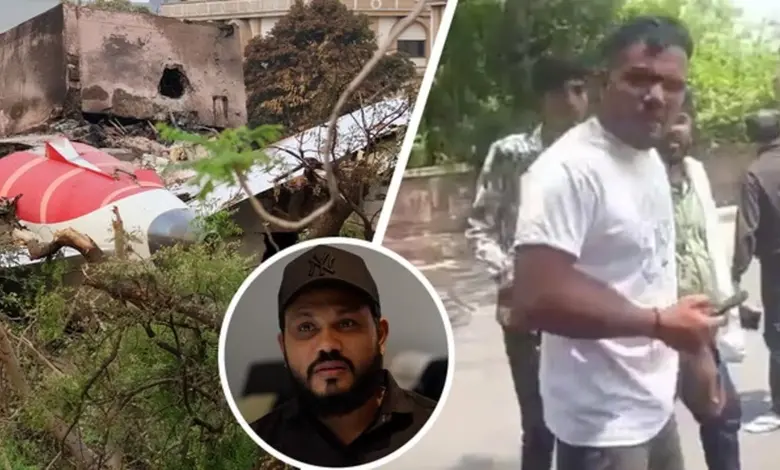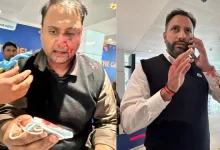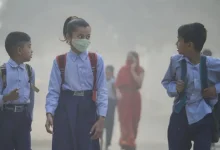
In the shadow of a catastrophe that claimed 241 lives, including his brother’s, Vishwaskumar Ramesh—the lone survivor of the June 12 Air India plane crash—endures a torment far beyond physical scars. What began as a routine flight from Ahmedabad to Gatwick has morphed into an unrelenting ordeal, leaving the 46-year-old UK resident isolated in his Leicester home, grappling with grief that severs him from his young family.
Ramesh occupied seat 11A, right beside the emergency exit on the Boeing 787-8 Dreamliner, callsign AI171. Moments after takeoff, the aircraft plunged into a medical college hostel, erupting in flames and killing 19 people on the ground as well. In a blur of chaos, Ramesh escaped through the exit, but his brother Ajaykumar, seated elsewhere, perished amid the wreckage. “Bodies all around,” Ramesh later recounted to DD India from his hospital bed, his voice cracking as he pleaded for news of Ajay.
Months later, in a raw interview with Sky News, Ramesh laid bare the crash’s devastating ripple effects. Faltering through silences and tears, he described a life unraveling. “It’s very painful talking about the plane,” he said, his words trailing into quiet. Confined to his bedroom, he spends days in solitude, lost in thoughts of Ajay—”For me, he was everything.” The mental anguish is compounded by lingering injuries: persistent pain in his knee, shoulder, and back, plus burns on his left arm that demand his wife’s assistance even for basic tasks like showering.
ALSO READ : Boeing and FAA Ignored 787 Dreamliner Water Leak Warnings Since 2016, Lawyer Claims in Air India Crash Probe
The toll extends to his four-year-old son, Divang, whom Ramesh admits he has been “not talking properly” with. When asked if the boy visits his room, Ramesh shook his head, a gesture heavy with regret. His wife, too, bears the strain of his withdrawal, as the family navigates this fractured normalcy.
Professionally, the disaster has been ruinous. Ramesh and Ajay had poured their savings into a fishing venture in India, necessitating frequent UK-India flights. Now shuttered, the business has left extended relatives in both nations without income, exacerbating financial woes. Supported by community leader Sanjiv Patel and adviser Radd Seiger during the Sky News session, Ramesh’s team has pressed Air India for aid beyond the airline’s interim payout of £21,500 (approximately ₹21,91,731), wired after his acceptance.
“Money is not enough,” Seiger emphasized, noting the sum “doesn’t even touch the sides” of mounting needs: school transport for Divang, groceries, medical care, and psychiatric therapy. Patel highlighted the broader fallout, urging Tata Group—Air India’s parent—to address the void left by the collapsed enterprise.
In response, an Air India spokesperson affirmed their commitment: “We are deeply conscious of our responsibility to provide Mr Ramesh with support through what must have been an unimaginable period. Care for him—and indeed all families affected by the tragedy—remains our absolute priority.” They added that senior Tata leaders have visited bereaved families to offer condolences and have proposed a meeting with Ramesh and other victims’ kin, extended through his representatives, in hopes of “talk[ing] as humans.” Chief Executive Campbell Wilson was specifically called upon by supporters for such a dialogue.
Ramesh’s discharge from hospital led him straight to Ajay’s cremation in Diu, where he broke down publicly, as captured by PTI. Echoing a related Hindustan Times report, his days blur into isolation: “Grief, physical and mental pain… sits alone in room, doesn’t talk to wife.” New footage from the crash site, showing him stumbling away as fire consumed the plane, underscores the miracle turned curse.
As investigations into the Ahmedabad tragedy continue, Ramesh’s story serves as a stark reminder of survival’s hidden costs— a man adrift in loss, yearning for reconnection amid the embers of what was.




